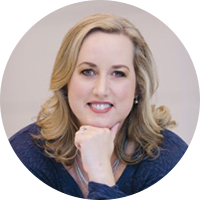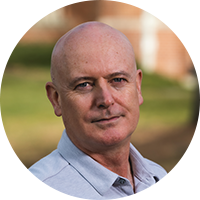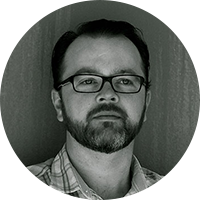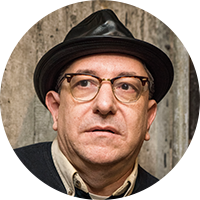UNI faculty demystify the novel writing process
UNI faculty demystify the novel writing process
Writing a fictional work of 40,000 words or more — better known as a novel — is no small feat. It can include a rather lengthy process of writing, revising, querying and, hopefully, publishing.
The University of Northern Iowa Department of Languages & Literature can count numerous novelists among its staff. Here is some insight into their novel writing experiences.
How many novels have you written? What are you working on now?

Adrianne Finlay: “‘Cut Off’ and ‘Your One & Only’ are both young adult science fiction novels released in 2020 and 2018. ‘Cut Off’ is about a group of teens on a survival reality show who come to realize that, for reasons they don’t comprehend, the outside world is not coming to save them. ‘Your One & Only’ is about a post-apocalyptic community made up of nine clone models, the first new human introduced into that society in over 100 years, and the clone girl who falls in love with him. Currently, I’m working on a young adult Iowa-based folk horror.”

Jim O’Loughlin: “In 2022, I published ‘The Cord,’ a science fiction novel set on either end of a future space elevator connecting Earth with an orbiting space station. The book was written as a reverse narrative, working backward in time in the history of the space elevator.”

Jeremy Schraffenberger: “The novel I’m working on now is called ‘Traffic,’ in which a young couple is driving across the country to go on their long-delayed honeymoon on the east coast. In the middle of nowhere on the interstate, with no cell phone service, they get stuck in a long traffic jam that never moves again. The story follows their struggle to survive and to uncover the mystery of what is causing the traffic in the first place.”

Grant Tracey: “I’ve written five novels, all of them featuring private detective Hayden Fuller. Three have been published; one, ‘A Shoeshine Kill,’ is at press; and another is ‘in the can,’ to be released a year or so after ‘Shoeshine’ is released.”
How do you get your ideas for writing? What inspired you to write this novel?
Finlay: “I get my ideas from so many places. I try to read widely, not just in the genre or category I’m writing in. The idea for my novel ‘Cut Off’ came while watching a reality show on the History Channel about survival in the wilderness. My idea for ‘Your One & Only’ came from reading a newspaper article about Barbara Streisand cloning her pet dogs, and this led me down an internet spiral, reading about advancements in cloning and essays on medical ethics.”
O’Loughlin: “Getting ideas is different than what it takes to write. I tend to get ideas when my mind wanders (often on a bike ride or in the shower), but the regular work of writing a novel takes a certain discipline.”
Schraffenberger: “So much of what I write is based on real life experiences. That is not to say it’s autobiographical. The characters I imagine always exhibit some personality trait or other that I can identify with, but they’re certainly not me. In the case of my new novel ‘Traffic,’ I was inspired by the long car trips I take every summer with my wife and kids from the midwest to the East Coast. There are times when the traffic slows down to a crawl on the interstate, and I began contemplating what would happen if we never moved again. Especially with novels with speculative elements, asking a very simple question can be a quite fruitful ‘what if?’ Otherwise, I am often inspired by some of the academic research I do for other parts of my work as a professor.”
Tracey: “I love hardboiled mysteries, and I read a lot of dead writers to help inform the world-building in my stories set in Toronto, 1965–1973. Raymond Chandler, Mickey Spillane, Jim Thompson, Ed McBain have all had a tremendous impact on me. The Fuller novel at press takes place over an eight-day period and uses the first four games of the 1972 Canada-Soviet Summit series as its backdrop. I revisit a time that informed my Canadian identity and weave together two stories, one involving the murder of a young shoeshine boy, and the other centering around the writer of young adult hockey novels who is accused of plagiarism and possibly murder.”
About how long does it take you to write a novel?
Finlay: “I try to write the draft of any novel within three or four months. This doesn’t mean that draft is any good! But I always say to my students, you can’t fix what’s not on the page. So I try to get the story down quickly. This helps keep my momentum, and mentally maintain the details of my story and characters. Once that first draft is finished, it can take a year or more to revise, at which point it goes to my agent or publisher, which most likely leads to another round of revision.”
O’Loughlin: “I started in 2012 and got about half of ‘The Cord’ drafted during a semester-long professional development assignment. That was the easy part. It took a few years after that, working off and on, to finish the draft, and then came the publication process. It took about a decade from conception to publication.”
Schraffenberger: “I began working on ‘Traffic’ in earnest in July 2023. I anticipate finishing it and querying agents before the end of the academic year.”
Tracey: “It usually takes me 40 days to write a detective novel (anywhere from 54,000 to 63,000 words). During that time, I’m writing every day, composing quickly, shutting off my internal censor. Then I put aside that draft for a couple of months—a cooling off period—before beginning the process of revision.”
How do you prioritize your writing when you have a full-time job, family commitments, etc.?
Finlay: “To be honest, it’s not always possible, but it’s important to keep in mind that there will always be something to get in the way, and to fight the tendency of those things to take over completely. As an academic and teacher at a university, having summers to work on my own projects is incredibly valuable. It’s also important to be excited enough about a project that you’ll look forward to sitting down with it. Writing is a lot of hard work, but if there’s joy in that work, it’s easier to make it a priority. When I’m immersed in a project, some part of my brain is always working on it, and that almost obsessive focus drives the work.”
O’Loughlin: “I tend to be an efficient writer, in that I have ideas ready to go for when I have time to write, but finding the time to write is always a challenge.”
Schraffenberger: “Luckily, my job requires me to maintain an active publication agenda, so when I’m working on the novel, I am fulfilling part of my job. Otherwise, it’s not easy to prioritize something that no one else in the world is actually asking you to do. But just as you have professional and personal commitments to people around you, you can also establish commitments to yourself.”
Tracey: “I write short stories during the semesters I teach. I write novels over the summer. Some of those semester stories morph into novels. For example, the fifth Fuller novel, ‘Artifacts,’ a sequel to a short story of the same name, is built by expanding on and combining three failed stories (ones that I haven’t been able to place).”
What does your writing routine look like? Do you have any rituals?
Finlay: “With a job and a family, I’ve learned not to be too particular about routine. Sometimes you have to take what you can get when it comes to time for writing. I’ve worked on novel drafts as a passenger in a car, traveling across the country with two small children (not that I recommend it). My favorite place to write is a coffee shop. I like the energy of a public space and movement around me while I’m building a world through writing.”
O’Loughlin: “When writing ‘The Cord,’ I had one trick I used. Every time I sat down to write, I started to stream Miles Davis’s ‘Sketches of Spain.’ Pretty soon, when I heard the opening notes, I got into work right away like I was one of Pavlov’s dogs.”
Schraffenberger: “Ideally, I have time to write in the mornings. That way I’m thinking about the novel all day, even if only on a subconscious level. During the academic year, that can be a challenge, especially when you teach in the mornings. Ritual is important in this way because you come to think of writing as just another thing you have to do every day. For me, that means drinking a cup of coffee and then sitting at my desk. I tell myself that I must complete at least 500 words before I’m allowed to do anything else (exercise, eat, bathe). Once I hit that mark, I may continue on if I have time, but I am also now allowed to get up and get on with my day.”
Tracey: “During semesters when I’m teaching I write two-three times a week. My daughter Effy, who lives in Denver, CO, gets together with me over Zoom, and we have a virtual coffee shop time of writing. In the summers I write my novels, working 40 straight days. In terms of rituals, I like watching film noir and crime movies while at work writing. When not writing novels, I’m reading crime books.”
What is the most challenging part of writing a novel?
Finlay: “Sometimes the most challenging part of novel writing is having faith in the story you’re telling, and feeling like you have something to say that’s worth sharing. Millions of stories have been told, some better than others, and to strive to add your work to that collection requires a basic belief in, if not yourself, then your contribution to that world.”
O’Loughlin: “Waiting for inspiration can work for short pieces but not for a long-term project like a novel. You have to forge through even when you are not feeling great about your draft (know that there’s time to revise). When I was starting a new section of the book, I would have to make myself keep writing a certain number of words each day, knowing that it might take a week before I produced anything I felt was good enough.”
Schraffenberger: “The most challenging part of writing this novel is the promise I made to myself that the characters would never ‘go back’ to a previous location or situation. That is, my goal is for the novel to maintain forward momentum. It’s been tempting to have my main character backtrack in order to take care of some plot issue, but because I have established this narrative principle, I have to find other solutions.”
Tracey: “I think the writing of genre stories is all about repetition and variation. Readers want to be in a landscape of the known, but they want surprises. What are you going to give them that’s fresh, new? So, invention mixed with convention is crucial. The other challenge for me is finding new forms to work within. I don’t want to keep writing within the same parameters: 10 to 12 chapters with a double twist in the final two chapters. So in the forthcoming ‘Shoeshine,’ I structure the narrative around four hockey games in Canada in September, eight days.”
Did you/are you planning on going the traditional or self-publishing route? What led you to that decision?
Finlay: “Self-publishing is one of the many pathways to publication, and there are certainly benefits to self-publication and many success stories. It’s important when contemplating self-publication to keep in mind the editing, distribution, marketing and even cover design of your project, as you will be in charge of all of it. Those things can take a lot of energy, time and expense. Traditional publication also includes small or university presses which offer great opportunities. Traditional publication with one of the big publishing houses will require finding an agent first, and then that agent finding a publisher, so there’s a lot of gatekeeping that might keep some really fantastic books from being published, so it’s great that there are many ways for your book to find its way into the world.”
O’Loughlin: “I’m both a writer and a publisher (Final Thursday Press), and I think any writer, at this moment in the history of publishing, should try to be involved in some form of publishing, just to have control of the process for part of your work. That said, while you can be your own publisher, you should not be your own editor. It’s difficult to see where improvements are needed in your own writing, and advice from others is crucial.”
Schraffenberger: “I will be querying agents as the first step in the long, sometimes frustrating process of publishing traditionally. I hope to have the novel picked up by one of the Big Five publishers. I never considered self-publishing mostly because I have no interest in doing all the work it takes to produce, edit, design, promote and distribute a book. Writing is only one aspect of bringing a novel into the world. I happen to think it’s the most important aspect, but I acknowledge and appreciate the work that agents, editors, designers, and marketers do to put books into people’s hands.”
Tracey: “I don’t have an agent, but I have a small press publisher (Ted Morrissey at Twelve Winters Press out of Illinois) who admires my work, and encourages me to keep writing Fuller stories for him to publish. In 2015, he published a collection of literary short stories of mine and then in 2016 began publishing hardboiled detective yarns featuring Hayden Fuller, a former hockey player turned PI.”
What is your number one tip for aspiring novelists?
Finlay: “Keep going! So many people start novels and reach the phase of writing where self-doubt and self-critique take over. Don’t let it. Keep writing, and keep getting words on the page. You can’t fix what’s not on the page.”
O’Loughlin: “The hardest thing about writing a novel is that no one needs you to do it. There are lots of other, easier, ways to spend your time, so you have to figure out how to make the process itself rewarding to you. And then, when it’s time to publish something, you need to be willing to be cold-hearted about revising the prose you worked so hard to draft.”
Schraffenberger: “The epigraph of E. M. Forster’s novel ‘Howards End’ is apt (if enigmatic) advice: ‘Only connect…’ Connect scenes and moments in the narrative. Connect with other readers and writers to form a supportive literary community. Connect art and literature to your life.”
Tracey: “Perseverance. Believe in yourself and stick to the business of writing. Don’t worry about the writing business. It will come.”




